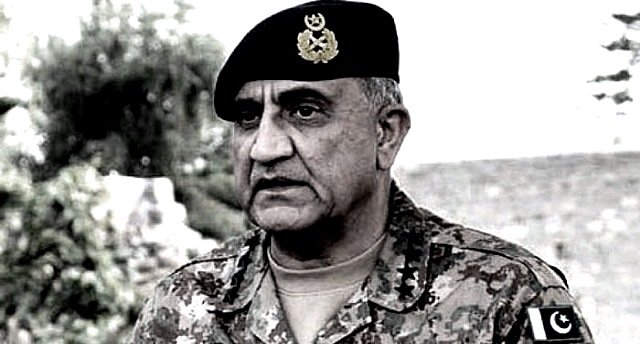Pakistan’s Chief of Army Staff General Qamar Javed Bajwa, while speaking at the International Conference on Radicalization, Perceptions, Realities & Challenges of Campus Life held at Air University in Islamabad today, stated that internal challenges emanating from ethnic and religious sectarianism are more severe compared to any external challenges. He further said that even though roots of current religious extremism date back to the 1970s, Pakistan today stands at a place where even a critical discussion on religion has become a taboo.
General Bajwa affirmed that the country needed to be ready to accept these challenges, and collectively rise as a nation to tackle our internal divisions. He further argued that terrorism in the country could only be defeated if the society acknowledged these problem in the first place. General Bajwa also raised several pointers in his speech, while speaking to the youth, faculty, and international scholars, on the threat of terrorism and the role of the military and the civilian government in this regard.
Some of his salient points from his speech are as follows:
- In efforts to eliminate extremism and violence in Pakistan, the Pakistani Army launched several counter-terrorism operations over the past few years and successfully managed to eliminate terrorists from the tribal areas of Pakistan. In the process, the Army made many sacrifices, including martyrdom of over 6500 soldiers and military personnel.
- However, while the Army has killed terrorists, it cannot kill terrorism, which is the job of the civilian government.
- Out of the 20 points of the National Action Plan, three pertain to the armed forces. The Army has completed all those but the remaining 17, which concern the role of the civilian government, have remained far from implementation.
- Where Karachi in 2016 was ranked as the 6th most dangerous city in the world, today it is ranked as the 66th, while many cities in the US are still topping the list of dangerous cities presently. There has been no terrorist attack in Karachi in the last two years, while Balochistan is also on the mend now.
- Pakistan is currently building Rs.66 billion worth of fence along the 2600 km long Pak-Afghan border to keep militants from crossing over into Pakistan. The fence will be 2300 km long and the results of the fencing have so far been very positive. General Bajwa predicted, once the fence is fully completed, the level of violence will drop by 95 percent.
- Pakistan is also establishing more check posts in the porous border where earlier there were no guards deployed to keep watch. In addition to upgrading Torkham and Chaman gates, 14 other gates are also being upgraded.
- The Madrassah (religious seminaries) system of Pakistan needs a reform where currently 2.5 million of Pakistan’s youth is currently enrolled. This is a deprived class that we have forgotten. Unfortunately, unlike Turkey and other Muslim countries where graduates of Madrassahs can start a career similar to graduates of other fields, the graduates of Madrassahs in Pakistan usually turn to terrorism or violence, as they have very limited career prospects. This seriously calls for a need to reform the curriculum taught in Madrassas to include natural and modern sciences as well.
- The merging of FATA with Khyber Pakhtunkhwa has been a much needed and long due step that the government has taken. However, it should have been merged much earlier.
- Other factors contributing to radicalization and extremism in the society include injustice, poor education standards, and poverty, which have made the deprived factions of the society susceptible to terror recruitment, crime and acts of violence. Furthermore, the inefficacy of the judicial system has made it difficult to convict the powerful and rich criminals, while the poor continue to suffer.
The three day International Conference on Radicalization, Perceptions, Realities & Challenges of Campus Life has been organized in collaboration with the Center for Research and Security Studies, among other collaborators, where CRSS will be conducting a three hour workshop on ‘Countering Extremist Narratives”, for Air University’s faculty members.
This report is compiled by Sitwat Waqar Bokhari who is a Research Fellow at the Center for Research and Security Studies and Programme Manager of CRSS’ sister organization – Afghan Studies Center.

